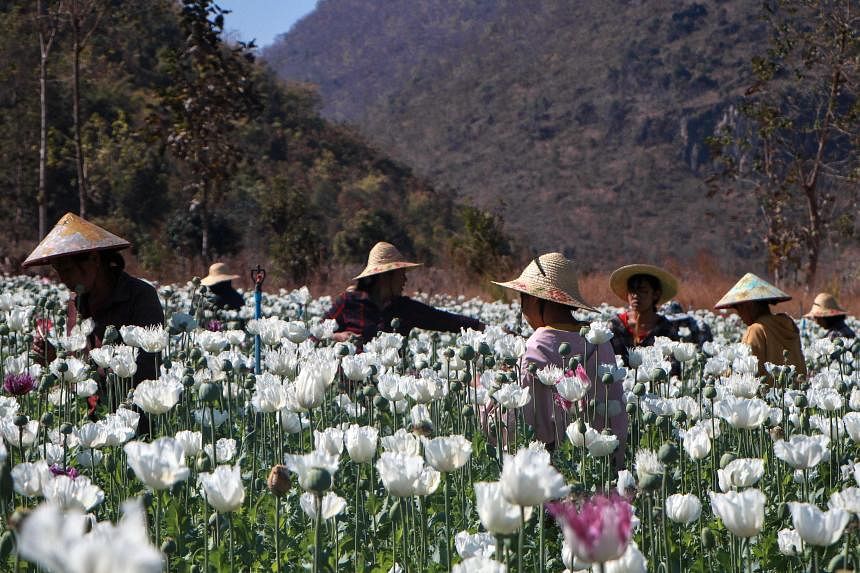Boom times for Myanmar opium farmers as coup chaos bites

Source: The Straits Times
PEKON, Myanmar - In a remote corner of Myanmar a line of farmers move through a field of nodding poppies, making small cuts in the greenish-purple pods to release opium resin.
The next morning they will collect the residue that has seeped out overnight and parcel it up into bundles of sticky opium - the building blocks for manufacturing heroin.
Myanmar became the world's biggest opium producer in 2023, according to the United Nations (UN), overtaking Afghanistan after the Taliban government launched a crackdown on the crop there.
The flowers have long flourished in Myanmar's rugged borderlands, where ethnic minority armed groups and criminal outfits refine them into heroin and law enforcement turns a blind eye to the billion-dollar trade, analysts say.
After the military seized power in 2021, sparking social and economic turmoil and armed conflict across the country, the cash crop has become more important to some farmers struggling to get by.
"I planted poppies in recent years, but only a few," said Mr Aung Moe Oo, speaking from the vast field enclosed by hills on the border of Shan and Karen states.
"This year, I planted three acres," he told AFP.
He expects those three acres to yield around 16 kilograms of poppy resin this harvest, which he hopes to sell for around US$4,500 (S$6,000).
He shrugged at the question of legality.
"Growing poppies is the best way to make a living for our family," he said, sporting a brown bucket hat and a striped grey shirt.
Ms Aye Aye Thein, another farmer from the region, used to grow rice, corn, beans and avocado.
But when the conflict between the junta and its opponents came to her home, she was forced to leave her fields.
Conflict since the coup - which ended a rare experiment with democracy in Myanmar - has displaced almost two million people, according to the UN.
Even before Ms Aye Aye Thein had to leave her home, the plunging value of the local kyat currency had made buying agricultural inputs like fertiliser much more expensive.
"After the political situation changed and there is fighting, we can't grow anything in our own fields," she said.



